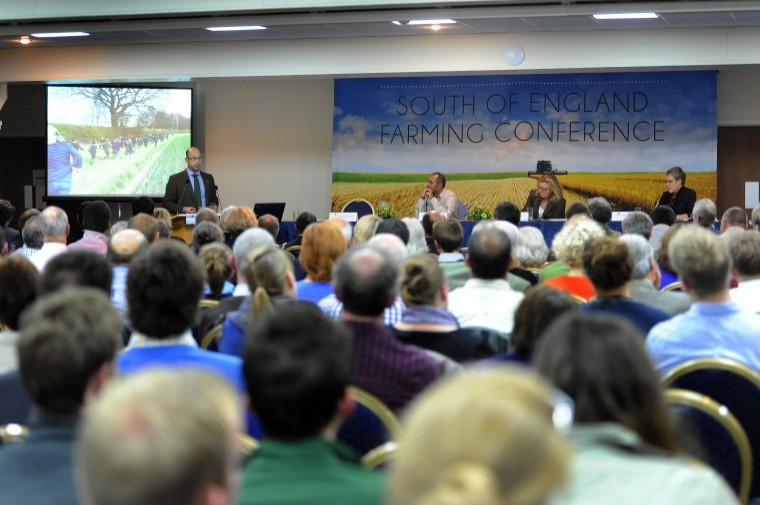Soil Association chief executive Helen Browning has urged farmers to take part in an innovations programme launched last year.
Innovative Farmers is part of the Duchy Future Farming Programme which is funded by royalties from the Duchy Originals brand sold in Waitrose supermarkets. Innovative Farmers is backed by LEAF (Linking Environment And Farming); Innovation For Agriculture, a collaboration between 15 agricultural societies; the Organic Research Centre based near Newbury, Berkshire; and the Soil Association. Waitrose supports the initiative.
Ms Browning told the conference that the core of Innovative Farmers’ work is field laboratories based on farms which trial new ideas. “This is for non organic as well as organic farmers, and 750 farms have taken part,” Ms Browning said. “They have covered 35 topics and nine out of 10 have reported getting something out of the programme.” Innovative Farmers is looking for 1,000 members, and will probably cap that number because of funding constraints. “The most progressive farmers in the country are starting to get involved in this kind of work,” Ms Browning added.
She highlighted some of the results from Innovative Farmers work in progress, including using sprouted seeds in cattle and laying hen rations to reduce the amount of expensive feed; reducing antibiotic use with mastitis typing and peppermint oil; improving yields on arable farms with compost tea; and using deep surface cultivations to combat creeping thistle.
With very little money going into applied research – and not much of what there is being farmer led – Ms Browning pointed out that Innovative Farmers can help fill the gap. Using organic methods, farmers can be more sustainable. Soil carbon, cover crops and earthworms are cultural solutions which are popular once again, and Ms Browning said these were all topics which organic farmers had been “banging on about” for some time. With the continuing struggle against black grass, the ban on chlorpyrifos – sold as Dursban to control leatherjackets – and a question mark over the future of glyphosate, organic methods could be essential alternatives.
“There are opportunities in organic arable cropping,” she said. “But don’t do it for the money. Only go into it if you think you are going to enjoy it and there is a market for your produce before you start.”
<a href=”http://www.southeastfarmer.net/assets/flipbook/2016/SEF1216/SEF12Dec16.html#14>Click here to more stories from the conference




